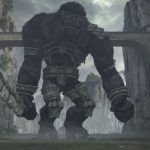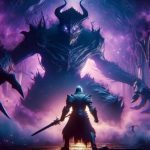 Technology
Technology  Technology
Technology  Weird Stuff
Weird Stuff 10 Wild Facts About Taxidermy That You Probably Didn’t Know
 Travel
Travel 10 Beautiful Travel Destinations (That Will Kill You)
 Miscellaneous
Miscellaneous 10 Modern Marriage Rituals Born from Corporate Branding
 Weird Stuff
Weird Stuff Ten Bizarre Visions of 2026 from Fiction
 Weird Stuff
Weird Stuff The 10 Unluckiest Days from Around the World
 Food
Food 10 Modern Delicacies That Started as Poverty Rations
 Movies and TV
Movies and TV 10 Shared TV Universes You’ve Likely Forgotten About
 Weird Stuff
Weird Stuff 10 of History’s Greatest Pranks & Hoaxes
 Miscellaneous
Miscellaneous 10 LEGO Facts That Will Toy with Your Mind
 Technology
Technology 10 Stopgap Technologies That Became Industry Standards
 Weird Stuff
Weird Stuff 10 Wild Facts About Taxidermy That You Probably Didn’t Know
 Travel
Travel 10 Beautiful Travel Destinations (That Will Kill You)
Who's Behind Listverse?

Jamie Frater
Head Editor
Jamie founded Listverse due to an insatiable desire to share fascinating, obscure, and bizarre facts. He has been a guest speaker on numerous national radio and television stations and is a five time published author.
More About Us Miscellaneous
Miscellaneous 10 Modern Marriage Rituals Born from Corporate Branding
 Weird Stuff
Weird Stuff Ten Bizarre Visions of 2026 from Fiction
 Weird Stuff
Weird Stuff The 10 Unluckiest Days from Around the World
 Food
Food 10 Modern Delicacies That Started as Poverty Rations
 Movies and TV
Movies and TV 10 Shared TV Universes You’ve Likely Forgotten About
 Weird Stuff
Weird Stuff 10 of History’s Greatest Pranks & Hoaxes
 Miscellaneous
Miscellaneous 10 LEGO Facts That Will Toy with Your Mind
10 Overused Game Villains
When playing games, you need someone to fight. As such, gaming has graced us with gaggles of great villains. However, some of them might be too great. Especially since they’re not always unique to the game you’re playing.
.
Several series have relied on the same villains for multiple entries. The reasoning comes down to pure fan service. There’s nothing wrong with pleasing your audience, but over-exploiting a character lessens the impact and makes the world feel small. These villains need to step aside. Otherwise, audiences may have too much of a bad thing.
Related: Top 10 Movie Villains Who Should Have Won
10 Venom
Venom is easily the most over-exposed member of Spider-Man’srogues’ gallery. On top of sporting a slickly gruesome spin on the familiar Spidey design, this symbiote villain gets his sick kicks by psychologically tormenting the hero over past mistakes. This fierce rivalry makes their relationship deeper than the usual bank robbers that make up the Web Head’s baddie heap.
As such, he’s a recurring enemy in countless games featuring the web-slinger. Spidey’s a popular superhero in the gaming market, so that list is a long one. He’s fought Venom in virtually every console generation. That frequency diminishes how this monstrous foe can be. Not only does he sport similar skills across each battle, but his story doesn’t evolve. Whether it’s Maximum Carnage, the 2000 Neversoft title, Ultimate Spider-Man, the Spider-Man 3 movie tie-in, Web of Shadows, or Insomniac’s Spider-Man 2, the tale always retells the symbiote arc from the comics (or goes through the same beats). It’s not shocking anymore; it’s just clichéd.
Worse, some of these games have seen Venom spawn an army of other symbiotes. This twist forces fans to fight endless waves of recycled slime monsters, amplifying the repetition and destroying any uniqueness Venom had left. Maybe this anti-hero needs to follow his film counterpart and branch out on his own. At least he’ll stop bothering Spider-Man and regain a bit of novelty.[1]
9 Shang Tsung
In a series like Mortal Kombat, you’d think the most enduring antagonist would be the most powerful. That’s not the case. Shao Khan may be a mightier overlord, but Shang Tsung has ultimately shown more staying power. The sinister sorcerer has unparalleled skill in manipulation, pitting dim-witted fighters against each other before making his move. Not only has that made him incredibly entertaining, but it’s also let him maneuver his way around every setback and repeatedly torment the heroes. Cary-Hiroyuki Tagawa’s hammy portrayal in the 1995 movie only strengthened his image. His meme-worthy performance practically became emblematic of the whole franchise.
The developers clearly took notice, throwing Shang Tsung into the roster at every turn. The circumstances for his return have become harder and harder to swallow. Perhaps the most blatant example was Mortal Kombat 11, where the crafty conjurer appeared in the DLC and basically stole the plot out from under everyone else. He even had Tagawa’s voice and likeness. It was admittedly a riot, but it also called attention to how dull the rest of the cast was by comparison. The developers had better fix that; one character can’t prop up an entire ensemble.[2]
8 Sephiroth
Despite each entry being self-contained, the Final Fantasy series recycles elements like crystals and chocobos to create some thematic and aesthetic uniformity. Unfortunately, the developers also tend to exploit what’s popular. Perhaps no character exemplifies that better than Sephiroth. This sleek warrior first emerged as the overarching villain of Final Fantasy 7. He was a terrifying presence, slaughtering anyone in his way with equal parts grace and menace. Not to mention, his “One Winged Angel” theme song was one of the best tracks in gaming. That said, he was a little too cool for his own good.
Since his debut, Sephiroth has gotten more exposure than any other Final Fantasy baddie. The FF7 tie-ins like Crisis Core and Advent Children both feature him prominently. In fact, they practically centered their stories on his “perfection” and the attempts to replicate it through cellular research. In addition, he’s been a consistent presence in crossover titles like Dissidia, World of Final Fantasy, and Super Smash Bros. Ultimate. He’s actually the only FF villain to feature in the Kingdom Hearts games. However, this paled in comparison to the Final Fantasy 7 Remake trilogy.
While the original game waited several hours before revealing the malevolent figure, the remake threw him in at the thirty-minute mark. He then appeared in virtually every major story beat, taunting the heroes as a hallucinogenic vision or ethereal assassin. These intrusions get old after a while. That feeling is indicative of his reputation as a whole. Without some restraint, Sephiroth’s schtick will seem tired and routine.[3]
7 Neo Cortex
One of many mad scientists in gaming, Neo Cortex was the creator of the manic Crash Bandicoot. He mutated animals into hideous hybrids and cyborgs to achieve ultimate domination. The problem is that Crash consistently foiled his plans. Despite repeated defeats in every single entry, he’s kept coming back for more.
Cortex is just pathetic at this point. His evil schemes have gotten increasingly uninspired, and he’s now found himself playing second fiddle to greater antagonists. Even the spin-off titles like Crash Team Racing and Crash Team Rumble made him the most prominent member of the villain groups, obsessed with scoring the smallest victory over his rodent rival. He’s essentially grown into a joke character and hasn’t evolved past that.
Crash Bandicoot 4: It’s About Time had the right idea in addressing that and having him join his one-time enemy. Toward the end, though, Cortex pulled a fast one and once again assumed the top villain spot, leading to yet another romp through his laboratory to stop him. With so many creatively crazy mutations running around, it’s insane (or N. Sane) that the series stubbornly clings to this washed-up wacko.[4]
6 Ganon
The Legend of Zelda franchise is epic in both its circulation history and in-universe timeline. Although it’s told similar stories for decades, most entries have changed time periods and locations for variety’s sake. You’d think those jumps would yield a few new faces, but no. The core characters have all been variations on their previous selves, Ganon included. Granted, he’s changed forms several times to complement the different settings. Sometimes, he’s an evil wizard, a talking warthog, or a Satanic demon. At the end of the day, though, these forms all boil down to the same entity.
Ganon has remained a monstrous overlord who threatens the realm of Hyrule and occasionally abducts Princess Zelda. He’s never gone much deeper. If anything, his shifting shapes have made that more disappointing. By looking like a new character every time, he’s tricked fans into thinking and expecting something fresh. Sadly, this has done little to stave off the feeling of déjà vu whenever players beat him.[5]
5 Dracula
This vampire has had a storied history in entertainment. On the gaming side, he’s been the overarching antagonist of Castlevania. He’s used his teleporting castle and legions of nightmarish creatures to ravage several corners of the world. The Belmont family of monster slayers has always thwarted his supernatural schemes, but Dracula has never failed to return. Much like his film and TV versions, the Dark Prince’s resurrections have gotten harder and harder to swallow. In addition, losing to every member of the Belmont clan made the Prince of Darkness look like a pauper.
That sensation has become more apparent with the changing locales. You’d think that Japan and other places would yield new antagonists, but Dracula’s teleporting castle has let him menace any place he sees fit. That’s a contrived plot device and a transparent excuse to keep him in the spotlight. To be fair, the games have experimented with alternate horror icons like Carmilla, Lycans, gorgons, the Grim Reaper, and even Satan. However, Dracula has often been pulling their strings. At the risk of humiliating him further, Castlevania should hand the villain reins to someone else.[6]
4 Dr. Nefarious
Though it started as a biting satire of corporate greed across a wacky galaxy, Ratchet & Clank has slowly gotten less clever in its writing. Namely, the jokes have grown sillier amid more predictable storytelling. Dr. Nefarious represents that shift. He’s a robotic baddie who screams at the top of his lungs, mostly at his snarky butler or how he’ll destroy the universe. The heroes then deflate that flamboyance by thwarting his convoluted plans. Rinse and repeat.
The series has stuck to that formula for most of its lifespan. Nefarious first appeared in the third entry—Up Your Arsenal—and has continued to plague the protagonists long afterward in games like A Crack in Time and All 4 One. Even 2016’s Ratchet & Clank, which was partly a remake of the first game, had Nefarious hijack the plot from the original antagonist, Chairman Drek. Most recently, Rift Apart brought the evil scientist back yet again to team up with his counterpart from another dimension, giving fans two for the price of one when they’d rather have someone new.[7]
3 The Templars
Assassin’s Creed is an incredibly tired series, which shouldn’t be the case. The games place players in a plethora of periods across human history. Sadly, their stories all narrow to the same beats and themes. The reason for that lies with the villains. The eponymous Assassins have waged an age-old war against the Templars. These fanatics strive to bring tyrannical order to a chaotic world. They’ve recruited countless famous faces throughout history, which would ordinarily lead to tremendous character variety. Unfortunately, all of these pivotal figures spout the same Templar dogma, robbing them of any personality. Of course, the boredom doesn’t stop in the past.
Since its inception, the AC series has used modern-day segments as framing devices. The Templars have since seized power as the Abstergo company. While they no longer spout the same cultish nonsense, they’re now a cliched corporation run by corrupt, narrow-minded businessmen. The Templars have bounced between two stereotypes for hundreds of years and an obscene number of games. The biggest mystery is how they’ve failed to evolve with the times.[8]
2 Dr. Eggman
One of the most iconic gaming villains ever created, Dr. Eggman, has been the constant nemesis of Sonic the Hedgehog. He’s routinely launched campaigns of conquest across the world. His objectives are simple: collect the Chaos Emeralds, achieve total domination, and destroy any meddlesome rodents in his way. The Blue Blur regularly foils his schemes, partly for his own amusement. Sadly, players don’t always share that amusement.
Eggman’s “evil scientist” archetype is both a benefit and a detriment. His manic personality lends itself to several slapstick gags and ironic silliness. In addition, his never-ending supply of robots has always given fans something to fight. Like any repeat, though, the whole exercise has grown stale. You can only smash the same egg-shaped mechs so many times before getting bored. Plus, the maniacal doctor’s plans have gotten progressively more ridiculous.
To be fair, he was a comedic crook from the start, but he’s barely a threat anymore. Even when the series creates a new antagonist like Shadow or Mephiles, Eggman pops in to be a nuisance and make the new baddie look more imposing by comparison. Yes, Sonic’s one-time foe has devolved into a common pest.[9]
1 Bowser
You can’t think of video game villains without picturing Bowser. The spiky, fire-breathing turtle has been Mario’s mainstay menace since the beginning. The plucky plumber has always rescued Princess Peach from his clutches and driven his Koopa Troopas out of the Mushroom Kingdom. It’s a universal tale of pure good overcoming tremendous evil. That may explain why Nintendo is loath to change it.
Most Mario titles have boiled down to the same premise. Its simplicity has allowed the developers to mold it into several gameplay styles, thereby lending much-needed variety to the longstanding series. At the end of the day, though, the plot always comes back to Bowser. Fans have beaten this guy too many times to count. Any menace he once had is effectively gone, so defeating him has no meaning.[10]








